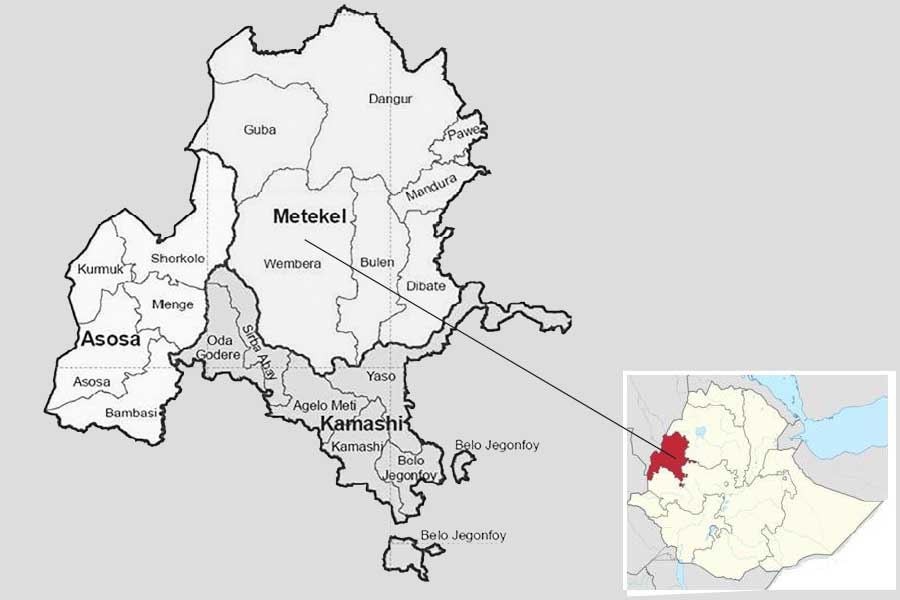
Fortune News | Dec 10,2018
Mar 30 , 2019
By Eden Sahle
Eden Sahle is founder and CEO of Yada Technology Plc. She has studied law with a focus on international economic law. She can be reached at edensah2000@gmail.com.
From time to time on Fridays when schedules permit, my younger brother, who is in his clinical year in medical school, and I go out for dinner or the movies. As his schedule is unpredictable, I often go to the hospital where he is practising and wait for him in the patients' waiting area until he finishes his work.
On one of these occasions, I met a young boy who quietly stood next to his mother. He was half dressed, barefoot and very minuscule with blemished and pale skin. I was surprised when he mentioned that he was eight years old - he looked much younger. He was tired, was uninterested in playing with my phone and would not speak to me for long.
His mother was more forthcoming. She confirmed that her boy was indeed eight years old and that he has lived all his life in Addis Abeba, though he had not started school yet. She, her husband and six children live in a one-room house in Sidist Kilo. Surprisingly enough, I learned that this mother of six, one of whose children I was able to see was evidently malnourished, came to the hospital seeking fertility treatment.
Even sadder, she had lost three children before they even reached five years of age. In each case, doctors had told her that the primary cause was malnutrition. This is a problem emblematic of the whole country.
About a third of all child deaths are connected to malnutrition in Ethiopia, according to UNICEF. This tragedy puts Ethiopia sixth in the global ranking of under-feeding its child population. What is aching is 72pc of these deaths are preventable if malnutrition, the leading cause of child mortality in Ethiopia, is halted. Out of Ethiopia’s 15.2 million under the age of five, 38pc are severely stunted, while a quarter are underweight, according to USAID.
The chronic problem is not of children only but also adults. Over half of our adult population is malnourished, according to estimates by medical professionals. It may not cause sudden death to adults for the body grows accustomed to it, but it has been confirmed that it puts adults at high risk of infectious diseases due to compromised immune systems, making diseases such as tuberculosis common in Ethiopia.
Nearly 800 million people in the world do not have enough to eat. Regrettably, it is common for poor nations such as Ethiopia to be overwhelmed with chronic child and adult undernourishment. People are categorised under this grouping if they are not getting enough protein, calories and micronutrients. On the other hand, the category of overnutrition is described as overconsumption of nutrients, such as protein, calories and fat.
Inadequate amounts of food cause retarded growth and cognitive development. Malnutrition in all its forms increases the risk of disease and early death by affecting organs like the central nervous system, which develops during infancy.
Apart from the risk of developing diseases, such as coronary heart disease, diabetes and high blood pressure, later in life due to malnutrition in childhood, there is evidence of long-term adverse effects on the intellectual capacity of human beings.
Undernourished children lack energy and appropriate cognitive development, forcing them to be less enquiring and proactive. This impairs their physical, mental and economic development.
Malnutrition, common among the poor and those with inadequate access to health care, education, clean water and good sanitation, causes children to have lower intelligence, problems in reading, arithmetic, reasoning and vocabulary.
Ethiopia is living in this disturbing reality. Children’s undernourishment not only perpetuates the vicious cycle of stubborn poverty but also leads to an enormous waste of human potential. Ethiopia’s short and long-term efforts to economic development will inevitably be unsuccessful until optimal child growth and development are ensured at a country level.
The consequences of malnutrition should be a significant concern for families, policymakers and the community in general, because the damage is far-reaching and lasting. It should receive a strong political commitment from the current incumbent and should as well be a point of debate for political parties aspiring to public office.
PUBLISHED ON
Mar 30,2019 [ VOL
19 , NO
987]

Fortune News | Dec 10,2018

Radar | Oct 26,2019

Life Matters | Jan 18,2019

Fortune News | Apr 13,2019

Films Review | Mar 21,2020

Fortune News | Mar 16,2019

Agenda | Nov 07,2020

Radar | Oct 24,2020

Fortune News | Nov 23,2019

Sunday with Eden | Aug 14,2021

Photo Gallery | 96460 Views | May 06,2019

Photo Gallery | 88741 Views | Apr 26,2019

My Opinion | 67099 Views | Aug 14,2021

Commentaries | 65738 Views | Oct 02,2021

Feb 24 , 2024 . By MUNIR SHEMSU
Abel Yeshitila, a real estate developer with a 12-year track record, finds himself unable to sell homes in his latest venture. Despite slash...

Feb 10 , 2024 . By MUNIR SHEMSU
In his last week's address to Parliament, Prime Minister Abiy Ahmed (PhD) painted a picture of an economy...

Jan 7 , 2024
In the realm of international finance and diplomacy, few cities hold the distinction that Addis Abeba doe...

Sep 30 , 2023 . By AKSAH ITALO
On a chilly morning outside Ke'Geberew Market, Yeshi Chane, a 35-year-old mother cradling her seven-month-old baby, stands amidst the throng...

Apr 20 , 2024
In a departure from its traditionally opaque practices, the National Bank of Ethiopia...

Apr 13 , 2024
In the hushed corridors of the legislative house on Lorenzo Te'azaz Road (Arat Kilo)...

Apr 6 , 2024
In a rather unsettling turn of events, the state-owned Commercial Bank of Ethiopia (C...

Mar 30 , 2024
Ethiopian authorities find themselves at a crossroads in the shadow of a global econo...

Apr 20 , 2024
Ethiopia's economic reform negotiations with the International Monetary Fund (IMF) are in their fourth round, taking place in Washington, D...

Apr 20 , 2024 . By BERSABEH GEBRE
An undercurrent of controversy surrounds the appointment of founding members of Amhara Bank after regulat...

An ambitious cooperative housing initiative designed to provide thousands with affordable homes is mired...

Apr 20 , 2024 . By AKSAH ITALO
Ethiopia's juice manufacturers confront formidable economic challenges following the reclassification of...